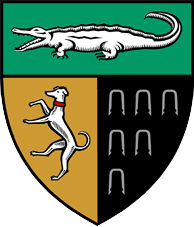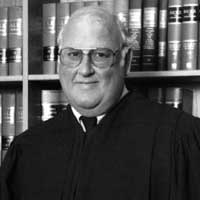Related Research Articles

Stanford Law School (SLS) is the law school of Stanford University, a private research university near Palo Alto, California. Established in 1893, Stanford Law had an acceptance rate of 6.28% in 2021, the second-lowest of any law school in the country. Paul Brest currently serves as Interim Dean.

The University of Chicago Law School is the law school of the University of Chicago, a private research university in Chicago, Illinois. It employs more than 180 full-time and part-time faculty and hosts more than 600 students in its Juris Doctor program, while also offering the Master of Laws, Master of Studies in Law and Doctor of Juridical Science degrees in law.

Yale Law School (YLS) is the law school of Yale University, a private research university in New Haven, Connecticut. It was established in 1824. The 2020–21 acceptance rate was 4%, the lowest of any law school in the United States. Its yield rate of 87% is also consistently the highest of any law school in the United States.
Guido Calabresi is an Italian-born American jurist who serves as a senior circuit judge of the United States Court of Appeals for the Second Circuit. He is a former Dean of Yale Law School, where he has been a professor since 1959. Calabresi is considered, along with Ronald Coase and Richard Posner, a founder of the field of law and economics.

The University of Virginia School of Law is the law school of the University of Virginia, a public research university in Charlottesville, Virginia. Founded in 1819, Virginia Law is the second oldest continuously operating law school in the United States.
Thomas H. Jackson is an American legal scholar who was the ninth president of the University of Rochester, preceded by Dennis O'Brien. Jackson held the position of president from 1994 until he formally stepped down on June 30, 2005, and was succeeded by Joel Seligman. Jackson's tenure was marked by the controversial "Renaissance Plan", which cut undergraduate enrollment while making admission more selective, and cut several graduate programs. He holds the position of Distinguished University Professor and has faculty appointments in the department of political science and in the William E. Simon Graduate School of Business Administration at the University of Rochester. Jackson is known as one of the nation's foremost experts on bankruptcy law.

Ralph Karl Winter Jr. was a United States circuit judge of the United States Court of Appeals for the Second Circuit.
Paul D. Gewirtz is the Potter Stewart Professor of Constitutional Law at Yale Law School and the Director of the Paul Tsai China Center at Yale.
Nicholas Quinn Rosenkranz is an American constitutional law scholar, professor, and Broadway producer. He writes and teaches in the fields of constitutional law, statutory interpretation, and federal jurisdiction. He is the son of billionaire investor and philanthropist Robert Rosenkranz.
Robert I. Weisberg is an American lawyer. He is the Edwin E. Huddleson Jr. Professor of Law at Stanford Law School, and an expert on criminal law and criminal procedure, as well as a leading scholar in the law and literature movement.
Barbara Allen Babcock was the Judge John Crown Professor of Law, Emerita, at Stanford Law School. She was an expert in criminal and civil procedure and was a member of the Stanford Law School faculty from 1972 until her death.

Deborah Lynn Rhode was an American jurist. She was the Ernest W. McFarland Professor of Law at Stanford Law School and the nation's most frequently cited scholar in legal ethics. From her early days at Yale Law School, her work revolved around questions of injustice in the practice of law and the challenges of identifying and redressing it. Rhode founded and led several research centers at Stanford devoted to these issues, including its Center on the Legal Profession, Center on Ethics and Program in Law and Social Entrepreneurship; she also led the Michelle R. Clayman Institute for Gender Research at Stanford. She coined the term "The 'No-Problem' Problem".
Harry Hillel Wellington was an American legal scholar who served as the Dean of Yale Law School from 1975 to 1985 and the dean of New York Law School from 1992 to 2000.

Paul Brest is an American scholar of constitutional law, a former president of the William and Flora Hewlett Foundation, and a former dean of Stanford Law School. He is an influential theorist on the role of non-profit organizations in society, and is widely credited with coining the name originalism to describe a particular approach to interpreting the United States Constitution.
C. Scott Hemphill is a legal academic whose scholarship focuses on intellectual property law and antitrust law. He is currently a Professor of Law at New York University Law School, where he has taught since 2015. Previously, Hemphill was a Professor of Law at Columbia Law School.
Stuart Alan Banner is an American legal historian and the Norman Abrams Professor of Law at the UCLA School of Law. Banner also directs UCLA's Supreme Court Clinic, which offers students the opportunity to work on real cases before the U.S. Supreme Court.
Heather Kristin Gerken is an American legal scholar who serves as the Sol & Lillian Goldman Professor of Law at Yale Law School, where she teaches election law and runs the San Francisco Affirmative Litigation Project. Since 2017, she has also served as the Dean of Yale Law School.

William Patrick Baude is an American legal scholar who specializes in U.S. constitutional law. He currently serves as the Harry Kalven Jr. Professor of Law at the University of Chicago Law School and is the director of its Constitutional Law Institute. He is a scholar of constitutional law and originalism.
Jennifer Nou is an American legal scholar who is currently a professor of law at the University of Chicago Law School and a senior advisor in the federal Office of Information and Regulatory Affairs (OIRA). She writes and teaches in the areas of administrative law, regulatory policy and constitutional law.
John Rappaport is an American legal scholar who is currently a professor of law and the Ludwig and Hilde Wolf Research Scholar at the University of Chicago Law School. He is an expert on criminal procedure and evidence law.
References
- 1 2 3 4 5 "Biography". law.stanford.edu. Stanford Law School. Retrieved July 18, 2015.
- ↑ "CV" (PDF). law.stanford.edu. Stanford Law School. Retrieved July 18, 2015.
- ↑ "Publications". law.stanford.edu. Stanford Law School. Retrieved July 18, 2015.
- ↑ Shapiro, Fred; Pearse, Michelle (2012). "The Most-Cited Law Review Articles of All Time". Michigan Law Review. 110 (8): 1483–1520. Retrieved July 18, 2015.
- ↑ Heredia, Christopher (August 13, 2004). "How Stanford law professor blazed trails". SFGate.com. San Francisco Chronicle. Retrieved July 17, 2015.